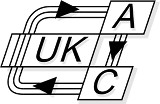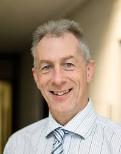Keynote Speakers
Keynote Speakers
Professor Tianyou Chai
Chair Professor in the Research Centre of AutomationThe State Key Laboratory of Synthetical Automation for Process IndustriesNortheastern University, China
Keynote Speech Title: Smart optimization control system for energy-intensive equipments
Abstract
China has abundance of mineral resources such as magnesite, hematite and bauxite, which constitute a key component of its economy. The relatively low grade, and the widely varying and complex compositions of the raw extracts, however, pose difficult processing challenges including specialized equipment with excessive energy demands. The energy intensive furnaces together with widely uncertain features of the extracts form hybrid complexities of the system, where the existing modeling, optimization and control methods have met only limited success. Currently, the mineral processing plants generally employ manual control and are known to impose greater demands on the energy, while yielding unreasonable waste and poor operational efficiency. The recently developed Cyber-Physical System (CPS) provides a new key for us to address these challenges. The idea is to make the control system of energy intensive equipment into a CPS, which will lead to a smart optimization control system.
This talk presents the syntheses and implementation of a smart optimization control system for energy-intensive equipment under the framework of CPS. The proposed smart optimization control system consists of three main functions: (i) process control; (ii) setpoint optimization control; and (iii) fault diagnosis and self-recovery control. The key in realizing the above functions is the algorithm structure which is able to integrate control, optimization, fault diagnosis and self-recovery control together seamlessly. This talk introduces the algorithm structure for integrated implementation of setpoint optimization control, process control and fault diagnosis and self-recovery control.
Hardware and software platform of smart optimization control system for energy-intensive equipment is then briefly introduced, which adopts embedded control system, wireless network and industrial cloud. It not only realizes the functions of computer control system using DCS (PLS), optimization computer and fault diagnosis computer, but also achieves the functions of mobile and remote monitoring for industrial process.
Then, using fused magnesium furnace as an example, a hybrid simulation system for smart optimization control system for energy-intensive equipment developed by our team is introduced. The results of simulation experiments show the effectiveness of the proposed method that integrates the process control, setpoint optimization control and fault diagnosis and self-recovery control in the framework of CPS.
The industrial application of the proposed smart optimization control system is also discussed. It has been successfully applied to the largest magnesia production enterprise in China, resulting in great returns. Finally, future research on the smart optimization control system is outlined.
Biography
Tianyou Chai received the Ph.D. degree in control theory and engineering in 1985 from Northeastern University, Shenyang, China, where he became a Professor in 1988. He is the founder and Director of the Center of Automation, which became a National Engineering and Technology Research Center and a State Key Laboratory. He is a member of Chinese Academy of Engineering, IFAC Fellow and IEEE Fellow, director of Department of Information Science of National Natural Science Foundation of China. His current research interests include modeling, control, optimization and integrated automation of complex industrial processes. He has published 150 peer reviewed international journal papers. His paper titled Hybrid intelligent control for optimal operation of shaft furnace roasting process was selected as one of three best papers for the Control Engineering Practice Paper Prize for 2011-2013. He has developed control technologies with applications to various industrial processes. For his contributions, he has won 4 prestigious awards of National Science and Technology Progress and National Technological Innovation, the 2007 Industry Award for Excellence in Transitional Control Research from IEEE Multiple-conference on Systems and Control.
Professor Er-Wei Bai
Keynote Speech Title: Target/Source Localization by a Network of Imperfect Binary Sensors
Abstract
In this talk, target/source localization by a network of binary sensors under various imperfections are studied. Detailed analysis and mathematical modeling of imperfect binary sensors are presented which include sensor failures of two types, uncertainty and heterogeneity in trigger thresholds, presence of noise and non-radial symmetry of sensing ranges. In particular, effects of outliers and ways to reduce/eliminate the effects are discussed. Numerical algorithms with convergence and asymptotic normality results are derived. Further a number of interesting insights are provided.
Biography
Profe. Er-Wei Bai received his PhD degree from the University of California at Berkeley. He is currently Professor and Chair of Electrical and Computer Engineering Department, and Professor of Radiology at the University of Iowa where he teaches and conducts research in identification, control, signal processing, cyber-physical systems and their applications in engineering and life science problems. He was a World Class Research Professor at the School of Electronics, Electrical Engineering and Computer Science, Queen’s University, Belfast 2012-2014. Prof. Bai is an IEEE Fellow and has served IEEE and IFAC in various capacities. He is a recipient of the President’s Award for Teaching Excellence and the Board of Regents Award for Faculty Excellence.
Professor of Electronic Engineering,
Maynooth University,Maynooth, Ireland
Keynote Speech Title: Optimising the Performance of Wave Energy Systems
Abstract
Wave energy aspires to play a part in the mix of renewable energy solutions addressing the world’s increased energy demand, the limited fossil fuel supply and the concerns about greenhouse gas emissions and climate change. However, limited progress has been achieved in the commercial deployment of wave energy systems, mainly due to the relatively high cost of wave energy.
Since the ocean is a challenging environment for the deployment of energy harvesting technology, with consequently high capital and maintenance costs, it is vital that the utility of deployed technology is maximised. Optimisation and control have a significant part to play in the drive to make wave energy economic and this keynote talk explores the challenges of applying control technology to wave energy systems.
The talk will offer some background to wave energy systems and present aspects where control and optimisation can make potential improvements. In addition to the more obvious application of control to maximise energy capture, wave forecasting methods are also required to address non-causality in the control solution, while a strong interaction between the control algorithm and the optimal wave device energy geometry, and optimal array layout, is also shown.
Biography
John Ringwood is currently the Professor of Electronic Engineering and Director of the Centre for Ocean Energy Research at Maynooth University, a past Head of the Electronic Engineering Dept. and previously Dean of Engineering at Maynooth University. He has previously held appointments at Dublin City University and visiting positions at Massey University and Auckland University. His research interests are mainly focussed in the area of modelling and control of dynamic systems and their applications in industry and human health. Since 2002, he has been involved in the development of control technology to enhance the performance of wave energy systems, as part of the effort to make wave energy economically viable. He is/was guest editor on special issues for ocean energy of the IFAC Annual Control Reviews, IEEE Trans. on Sustainable Energy, Ocean Engineering and Marine Energy and Energies journals and co-author of the book Hydrodynamic Control of Wave Energy Devices, along with Umesh Korde. He hold the HonsDipEE from Dublin Institute of Technology, the BSc(Eng) in Electrical Engineering from Trinity College Dublin, the MA in Music Technology from Maynooth University and the PhD in Control Engineering from Strathclyde University. He is a chartered engineer and Fellow of Engineers Ireland and a Senior Member of IEEE.


